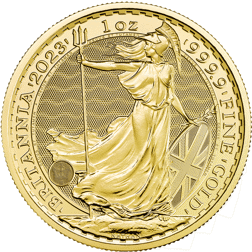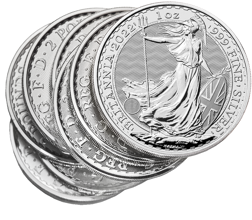Capital Gains Tax: Your Questions Answered
What is Capital Gains Tax (CGT)?
Capital Gains Tax is a tax applied on the profit when you sell, give away, or dispose of any assets you own that have increased in value.
These assets can include shares, bullion, and real estate property.
CGT is payable if an investor realises over a certain amount of profit in one financial year.
What am I taxed on?
You are taxed on the gain that is made and not the total amount of money that is received.
For example: Over one financial year, an investor bought bullion for £25,000 and later sold it for £38,000. The investor made a gain of £13,000 and this is what they would be taxed on. HMRC allow an exemption amount each tax year. For the tax year 2024-25, the annual exemption amount for Capital Gains Tax is £3,000. This is the amount of profit you can make from assets in this tax year before any tax is payable. Any profit made over £3,000 will be taxable. So, in the above example, the investor will pay tax on the balance of £10,000.
The tax rate that you will pay varies from 18% to 24% - you can find the exact rate from the HM Revenue & Customs website.
Which assets are tax-free?
Certain assets are exempt from CGT, such as NISAs, ISAs or PEPs. Also exempt are UK government gilts and premium bonds, betting, and lottery or pools winnings.
Do I have to pay CGT on gold and silver bullion?
In some cases, yes. CGT is payable if you make over a certain amount of profit from your bullion in a financial year. This limit is reviewed every year, so we would advise investors to check the CGT information page of the HMRC website for up-to-date information. For the tax year 2024-25, the annual exemption amount for Capital Gains Tax has been reduced from £6,000 to £3,000. This is the amount of profit you can make from your assets in this tax year before any tax is payable.
Are there any gold or silver bullion products exempt from CGT?
Yes. All coins produced by The Royal Mint that qualify as British legal currency are exempt from Capital Gains Tax. This includes all silver and gold Britannia coins, post-1837 gold sovereign coins, Queen's Beasts coins, Tudor Beasts coins, and UK Myths and Legends coins, including proof sets. You can make unlimited tax-free profit on investments of any value on these coins. This exemption makes these coins popular with our clients.
Any profits made from all other gold and silver coins and bars that are not in this category are taxable.
What is the best way to save on CGT when buying gold?
The best and most simple way to save from paying CGT on gold in the UK is by choosing to buy Capital Gains Tax-free gold coins. Alternatively, you can choose to sell smaller quantities of your non-CGT-free gold bullion. As long as you sell your gold bullion to make a profit that is less than the allowance set for that financial year, you will avoid having to pay any CGT.
The bottom line…
Many investors in gold or silver bullion need not worry themselves about CGT, due to the size and value of their investment. However, if you are planning to invest a substantial amount in gold, then gold sovereigns or Britannia coins may be the optimum choice for you. These UK coins are exempt from any Capital Gains Tax and allow you the freedom to invest and sell as much or as little as you require, as and when you need.










